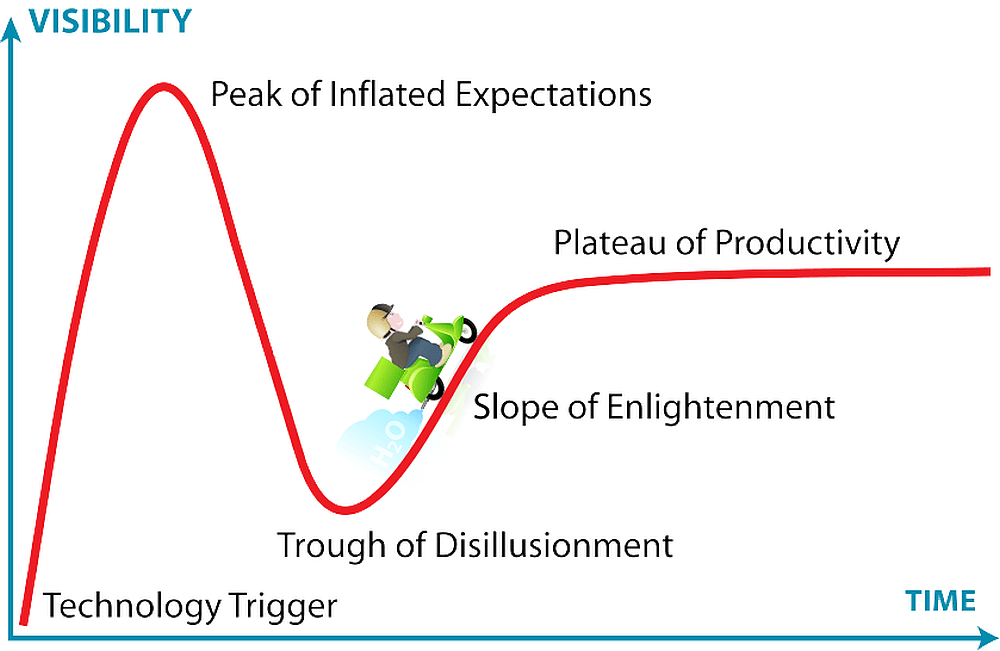
NREL’s Open Energy Info website is an interactive website with a wiki-like feature, apps and datasets. Credit: NREL/OpenEI; YouTube.
In 2009 the National Renewable Energy Laboratory (Golden, Colo.) rolled out a website called OpenEI, or Open Energy Info. With the tagline, “Your Gateway to the World’s Energy Information and Data,” the idea is to provide an open access, interactive repository for all things energy. OpenEI is organized into five sections: wiki, apps, datasets, community and linked data.
The wiki part of the website offers eight content “gateways,” which are really categories of energy technologies or applications: buildings, hydrogen, geothermal, smart grid, solar, utilities, wind, and oil and gas. The newest of these is the hydrogen gateway, which appears to have been added in September.
Based on a quick skim through the gateway wikis, it looks like the landing pages for each are dense with content that provides an overview description of the technology, links to policy information, maps, references and a listing of companies worldwide that are actively working in the technology area. The pages are organized well, but not consistently between the gateways, which is a reflection of the engineering, legislative and political differences that apply.
The website’s library of about 240 apps (or website links) offers a huge range of portable or desktop tools. The apps include things like an alternative fuel locator, a DOE energy technology prices and trends website, a wind turbine acoustic assessment website and a visual patent search website. Some are clearly targeted to the individual or household user, like “Unplug Stuff,” and some are puzzling, like the “Michael Tyson’s Punch House” (a gamelike website for evaluating electricity consumption—really? Mike Tyson?). My only criticism about the app section of the website is that the “back” arrow in the browser is not engaged, so it is not possible to check out an app and go back to the library using the browser “back” arrow (and made putting in the app links a labor of love for you, dear readers).
Those working on the science and engineering of energy technologies, know that data is the lifeblood of design, modeling and testing. OpenEI maintains a dataset collection that, so far, includes about 820 datasets. Recognizing that data quality is of the utmost importance, the website says, NREL is making “every effort to ensure that only validated data with referenced sources are included in the platform. The user community can help expand the data and increase accuracy, which is what really strengthens this platform. In addition, we have data/content experts who will help evaluate submissions, and we are also developing a data-rating system for the platform.”
Looking through the first hundred or so, the datasets appear to be contributed mostly (perhaps exclusively) by government agencies and public entities, including a few foreign datasets from places like Sweden and New Zealand. That does not mean they are not useful, just that the database is not comprehensive. Also, I did not see any datasets that would include things like materials property data that are needed for engineering. However, collecting and presenting data in a cost-effective manner is a beastly problem, and this seems like a good first step. Searching the datasets is clumsy, and the usability of the database would improve if there were a filtering tool similar to the filters provided for searching the apps.
The last two sections are “community” and “linked data.” Community is about what you would expect and seems to be used as channel for putting out NREL news about town hall meetings, award nominations, etc.
The main feature of the linked data tab is an interesting TED talk by Tim Berners-Lee, the British software engineer who came up with the basic ideas that are now the internet. In his talk, he outlines his ideas for doing something similar with data, a plan he calls linked data. Some people are already starting to experiment with these ideas and show the power of data that links to other data. The linking gives the data an organic quality, similar to the way hypertext linking of documents and websites work.
Overall, the OpenEI website does a pretty good job at collecting and presenting information, data and resources for the enormous topic of energy. It is a good place to get started on understanding energy technologies and their attendant issues, and it goes beyond the surface stuff that is easy to find in the mainstream media. Engineers and scientists will find it most useful for business and policy information.
Author
Eileen De Guire
CTT Categories
- Energy
- Market Insights
Related Posts
Hype cycles: The uphill climb for hydrogen bikes
June 26, 2025


